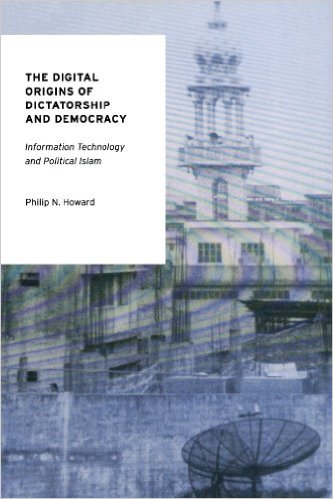
Professor Philip Howard
Professor of Internet Studies
Philip N. Howard is a professor of sociology, information, and international affairs. He is Director of the Programme on Democracy and Technology, and is a Professorial Fellow of Balliol College.

Around the developing world, political leaders face a dilemma: the very information and communication technologies that boost economic fortunes also undermine power structures. Globally, one in ten internet users is a Muslim living in a populous Muslim community. In these countries, young people are developing their political identities―including a transnational Muslim identity―online. In countries where political parties are illegal, the internet is the only infrastructure for democratic discourse. In others, digital technologies such as mobile phones and the internet have given key actors an information infrastructure that is independent of the state. And in countries with large Muslim communities, mobile phones and the internet are helping civil society build systems of political communication independent of the state and beyond easy manipulation by cultural or religious elites.
This book looks at the role that communications technologies play in advancing democratic transitions in Muslim countries. As such, its central question is whether technology holds the potential to substantially enhance democracy. Certainly, no democratic transition has occurred solely because of the internet. But, as Philip Howard argues, no democratic transition can occur today without the internet. According to Howard, the major (and perhaps only meaningful) forum for civic debate in most Muslim countries today is online. Activists both within diasporic communities and within authoritarian states, including Iran, Saudi Arabia and Pakistan, are the drivers of this debate, which centers around issues such as the interpretation of Islamic texts, gender roles, and security issues. Drawing upon material from interviews with telecommunications policy makers and activists in Azerbaijan, Egypt, Tajikistan and Tanzania and a comparative study of 74 countries with large Muslim populations, Howard demonstrates that these forums have been the means to organize activist movements that have lead to successful democratic insurgencies.
About the author
Philip N. Howard is a professor of sociology, information and international affairs. He teaches at Oxford University and is a Fellow at the Tow Center for Digital Journalism at Columbia University. He writes about information politics and international affairs, and he is the author of eight books, including The Managed Citizen, the Digital Origins of Dictatorship and Democracy, and now Pax Technica: How the Internet of Things May Set Us Free or Lock Us Up. He has won multiple “best book” awards, and his research and commentary writing has been featured in the New York Times, Washington Post, and many international media outlets. Howard holds a Ph.D. from Northwestern University, where he studied how U.S. politicians use the internet to market their brand and manipulate public opinion.